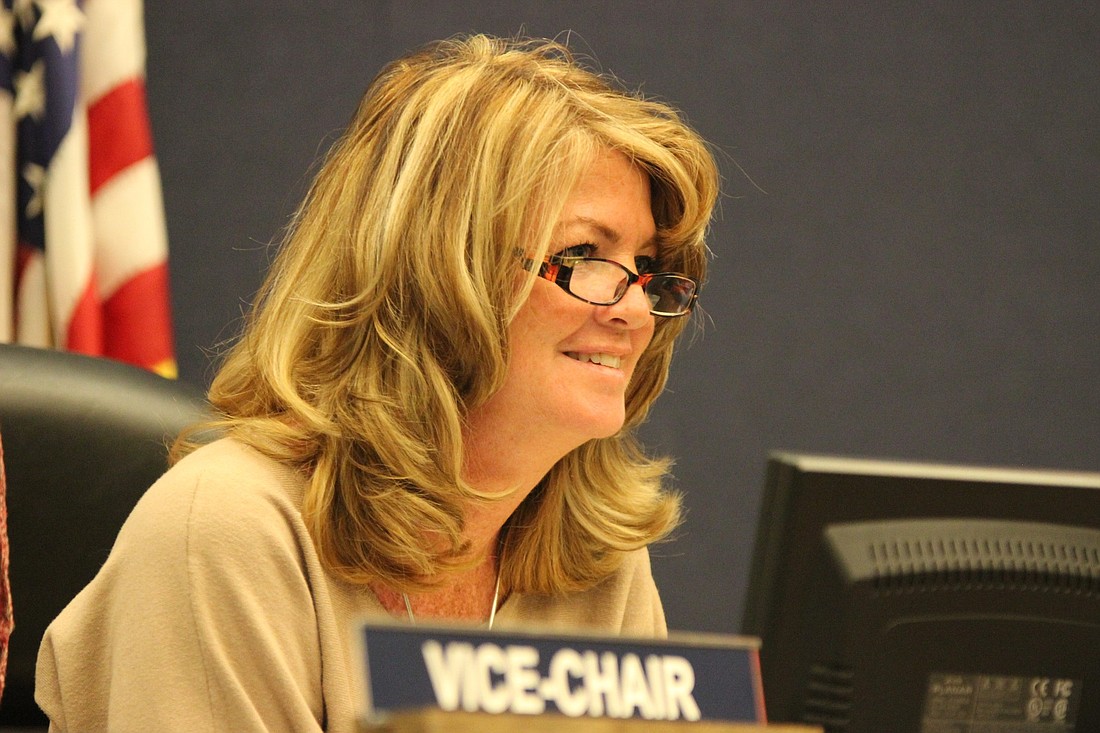- February 27, 2025

After a decade of grappling with health insurance premiums which seemed to balloon exponentially every year, the Flagler County School Board approved on Tuesday what in comparison appears a pittance — a 4.5% bump.
“For at least the last 10 years, we’ve seen double-digit increases in our premiums,” Superintendent Jacob Oliva said. “To be able to have something in the single digits is a testament to the School Board’s commitment to start a self-insurance plan.”
That plan, a self-insurance setup with the firm Brown and Brown, allows the School Board to control its costs by educating its employees so that they will use a contracted walk-in clinic whenever possible, rather than going to the emergency room. Brown and Brown also handles the insurance for the city of Palm Coast, which converted to a self-insurance model a few years ago. County employees are also under a self-insurance plan.
School Board member Colleen Conklin called it a "leap of faith" to move to the self-insurance model, which began Nov. 1, 2013. So far, considering the premium increase was limited to 4.5% this year, which amounts to an increase from $517 to $540 per month for the middle plan out of three tiers, the switch has been a success.
Before the switch, insurance premiums for school employees rose 30% from 2012 to 2013.
“The rates were getting astronomical,” said Harriett Holiday, the district's director of human resources. “We wanted to give the employees some relief."
Despite vigorous discussion following a presentation by Brown and Brown Vice President Julie Freidus, the board members initially were subdued at the news of the 4.5% increase, until Conklin spoke up.
“I think everyone should be a little bit more excited about this!” she said. “We have been dealing with double-digit increases.”
School Board Chairman Andy Dance added: “It is exciting, because this typically is the part of the year that I dread the most, at least since I’ve been on the board. These increases and changes to our health insurance have been some of the worst decisions. You don’t get to pick a good decision; you’re picking from a bunch of really bad decisions. It’s stressful, when you think of how you affect all the employees’ pocketbooks.”
“At least from my perspective,' he said, "it’s a huge sigh of relief that the plan is working. It’s working better than we thought.”
Dickinson cites billing glitch, calls for review
Flagler Schools started a contract with Prompt Care — a local walk-in clinic — on Nov. 1, 2013, to provide health care to employees. The initiative was designed to be a model of health care that is more financially efficient than having employees visit the emergency room.
It also should allow employees to go the clinic and receive routine care without paying any money out-of-pocket.
But, at the April 15 workshop, School Board member Sue Dickinson said she had been charged $5,200 out-of-pocket for recent claims. After consulting with her Flagler Schools’ benefit department, Brown and Brown Insurance, and ultimately United Health Care, she was told about a “computer error” on the provider’s end.
“I was told United Health Care had made a mess up,” she said, “and it would take them four to six weeks to solve the problem. I found that to be totally unacceptable.”
In her plan, the deductible was supposed to reset on Sept. 1, 2013. Instead, it was reset again on Jan. 1. Therefore, any health costs that she had to pay from Sept. 1 to Dec. 31 did not count toward her deductible. She said more than 100 families are on the same high-deductible plan that she has, and all of them could be impacted by the erroneous billing.
“As of today, I have six claims to United Health Care that I did through the clinic,” she said. Later, she added, “We’re asking our people to utilize the clinic. If they’re going to get bills from the hospital (also), we’re lying to them.”
Dickinson said that because the insurance company’s calculations would be skewed by the inflated charges, premiums could rise districtwide.
She imagined what an employee might say upon discovering his own unexpected bills, and furthermore, that some trusting employees might pay medical bills without closely examining charges to ensure they’re correct: “You told me, ‘If I go to the clinic, it doesn’t cost me any money, and I get a bill in the mail?’” she said. “Something has to get resolved here.”
She called for an audit of employees’ billing and reiterated that her issue has not yet been resolved, despite dialogue with Brown and Brown dating back to February.
School Board Chairman Andy Dance asked, “Do we need to ask employees if they have received bills?”
The issue arose at the end of a presentation by Julie Freidus, vice president for Brown and Brown Insurance. She explained the recommended changes to the district’s employee group health plans, which are up for renewal.